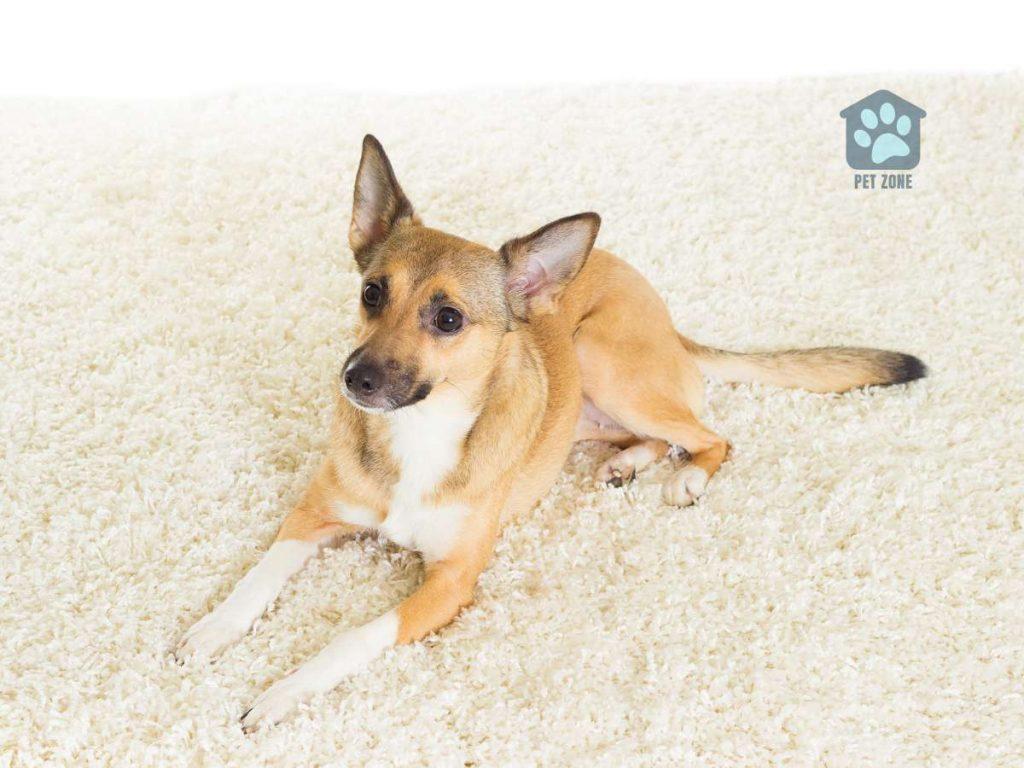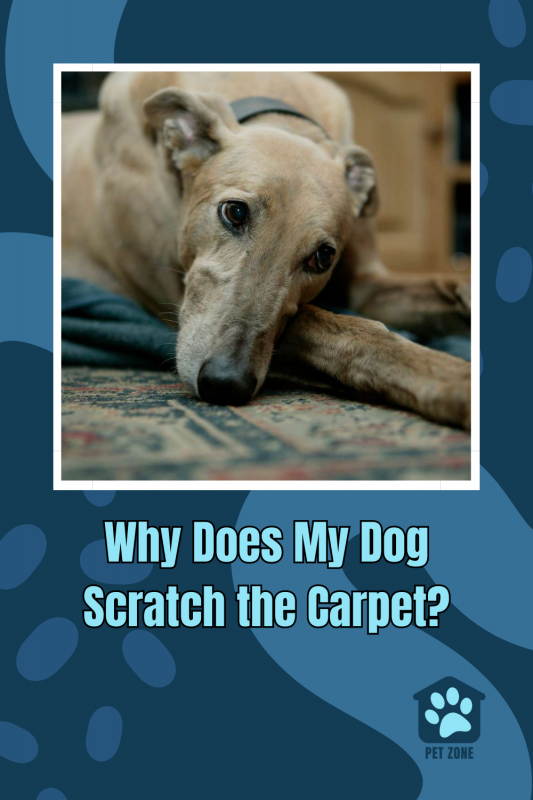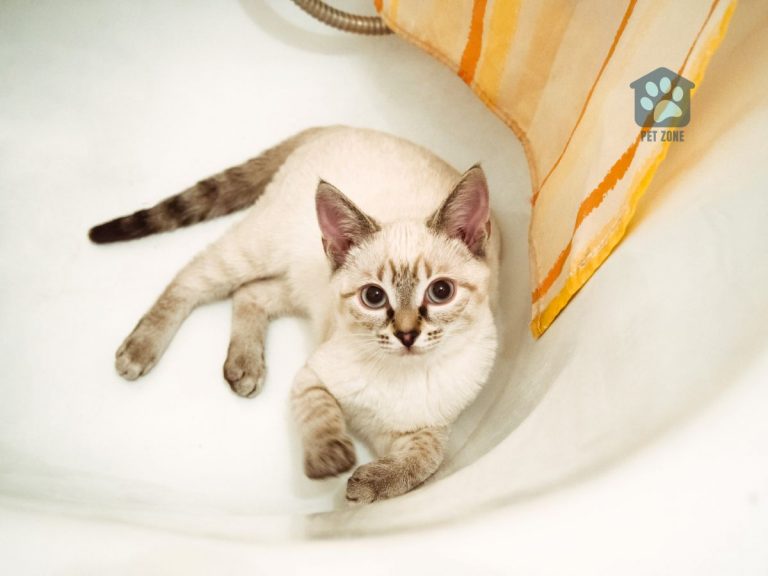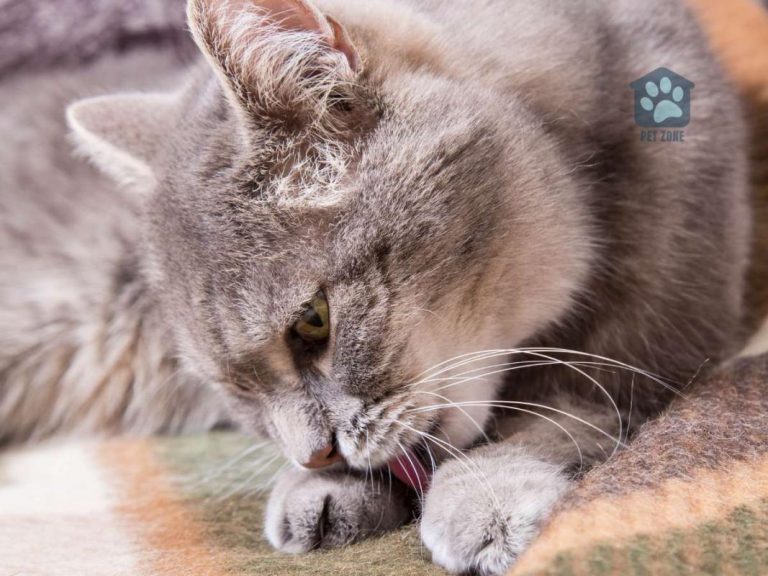Estimated reading time: 6 minutes
Dogs may scratch carpets due to several reasons: boredom, anxiety, nesting instincts, attention-seeking behaviors, intriguing smells, ancient digging behaviors, or physical discomfort. To prevent this behavior, dog owners can provide regular exercise, address anxiety triggers, redirect attention with toys, keep the carpet clean, offer a comfortable resting area like a dog bed, and consult a veterinarian for any underlying health issues.
Have you ever sat on your couch, enjoying some quiet time, only to hear the distinct sound of carpet scratching? This isn’t just a random act. Dogs have their reasons, and understanding them can make a big difference for both you and your pet.
In this article, we’ll dive into the reasons why your dog may be scratching your carpet and offer ways to train your dog to stop turning your floor into their playground.
Understanding Dogs’ Behavior
Dogs are fascinating creatures, and their actions often stem from instincts or learned behaviors. Long before they lay on our living room floors, dogs lived in the wild. For thousands of years, scratching the ground to make a cozy spot was just another day’s work.
So when you notice your dog beginning to dig and scratch at the carpet, it might just be echoing those age-old habits. But there’s more to the story than just old habits. Let’s delve into some of the common reasons why dogs engage in this carpet-digging behavior.
Common Reasons Why Dogs Scratch the Carpet
Boredom
Picture this: your dog has been lying around all day, and there’s not much happening. That energy needs to go somewhere. So, when he can’t go for a walk or play fetch, the carpet becomes an enticing target.
It’s not just about the act of scratching; it’s a way to burn off energy. As a dog owner, introducing toys and more playtime can divert this behavior.
Anxiety and Stress
Our furry friends can’t always tell us when they’re feeling off. Just as humans might bite their nails or pace when nervous, dogs often scratch the carpet as a coping mechanism.
Common stressors include loud noises like thunderstorms or even the absence of a family member. The carpet becomes a comfort zone, a familiar place to release anxiety.
Nesting
Mother Nature has a powerful influence. Especially for female dogs, scratching can be tied to nesting instincts.
They scratch and dig the carpet, trying to create a cozy, warm spot – an imaginary nest for potential pups. Even if they aren’t pregnant, this age-old instinct can still kick in.
Attention-seeking
Dogs love interaction. If they’re feeling left out or notice you’re too busy with something else, they might resort to scratching the carpet.
Why? Because it often gets a reaction! They’ve learned that when they dig into those carpet fibers, you’ll probably give them attention, even if it’s just a quick “No!”
Smells and Scents
The world of scents is much richer for dogs than for us. A spot on the carpet might hold fascinating smells, from food crumbs to outside scents brought in on shoes.
If something smells intriguing, a dog will scratch and dig at the carpet to explore the scent more deeply.
Instinctive Behavior
Wild ancestors of our domesticated pets scratched the ground to create a comfortable sleeping spot or to unearth prey.
While your modern dog doesn’t need to hunt for dinner or find a sleeping spot in the wild, these old instincts still surface. The carpet might just remind them of the grassy outdoors.
Certain Breeds
Some dog breeds, due to their innate behaviors or historical roles, might be more predisposed to digging and scratching, making it especially important for owners of these breeds to be proactive in addressing carpet scratching.
- Terriers (like Jack Russell Terriers or Cairn Terriers): Historically bred for hunting and burrowing after underground prey, terriers often have a strong digging instinct.
- Dachshunds: These “wiener dogs” were originally bred for hunting small animals underground, which might explain their penchant for digging.
- Siberian Huskies: With a background of surviving in cold climates, Huskies might dig as an instinctual behavior to create shelter from harsh conditions.
- Beagles: As scent hounds, Beagles often follow their nose which can lead them to dig in areas where they catch an intriguing scent.
- Border Collies: Known for their herding and high energy, if not provided with enough mental and physical stimulation, they might turn to behaviors like digging.
- Basset Hounds: Their powerful sense of smell can lead them to scratch and dig at areas where they detect interesting odors.
Physical Discomfort
Physical issues like skin allergies, fleas, or even pain can lead a dog to scratch the carpet. It can be their way of trying to find relief.
Regular check-ups and keeping an eye on your dog’s overall health can help address any underlying issues.

How to Stop Your Dog from Scratching the Carpet
Exercise and Mental Stimulation
Engage Physically: An under-exercised dog often finds outlets for its energy. Tailored activities like agility courses, fetch games, or even simple tug toys can help dissipate this energy. Daily walks, based on the dog’s breed and energy level, are crucial.
Brain Games: Introduce toys and games that make your dog think. Interactive feeders, hide-and-seek games with treats, or even teaching new tricks can engage their mind, diverting their attention from the carpet.
Addressing Anxiety
Environment Control: Create a quiet space for your dog, especially during known stressors like fireworks or storms. Blackout curtains or white noise machines might help.
Natural Remedies: There are herbal supplements and sprays designed to calm anxious dogs. Consult with your vet for safe options.
Consistent Scheduling: Dogs find comfort in routine. Keeping consistent feeding, potty breaks, and playtime can reduce anxiety.
Redirection and Positive Reinforcement
Immediate Intervention: As your dog starts scratching, intervene with a firm “No!” or by redirecting them to another activity.
Reinforce Good Behavior: Celebrate moments when your dog chooses not to scratch. Whether it’s verbal praise, a favorite treat, or extra playtime, reinforce the behavior you want to see.
Carpet Cleaning
Regular Maintenance: Dust, dander, and food residues can be attractive. Vacuuming regularly, especially in your dog’s favorite spots, can help.
Deep Cleaning: Periodic deep cleaning, using dog-safe cleaning agents, can eradicate deeper scents and stains, making the carpet less appealing for digging.
Providing Comfortable Spaces
Beds and Blankets: Try to give your dog a variety of bedding options. Some dogs prefer plush beds, while others might like a firmer surface. Consider beds with thermal features for added comfort.
Safe Spaces: Create a designated ‘dog zone’ equipped with toys, water, and a bed. It’s a clear signal that this is their space to relax and play.
Consultation with Veterinarians
Health Screening: Regular health check-ups can detect issues like skin irritations, fungal infections, or even arthritis, which might cause a dog to scratch more.
Seek Expert Advice: If you’ve tried multiple strategies and your dog continues to scratch, it might be time to consult a behavioral expert. They can offer tailored solutions based on your dog’s specific needs.
Conclusion
It’s important to remember that if your dog is scratching the carpet, he’s not doing it out of malice. It’s a blend of instincts, behaviors, and sometimes, health concerns.
As a dedicated dog owner, understanding the root causes and implementing preventive strategies can make all the difference. Not only will you save your beloved carpet, but you’ll also ensure that your four-legged friend is happy, healthy, and engaged in positive activities.
Remember, communication goes both ways. While our dogs might not speak our language, their behaviors often tell us more than words ever could.
Feel free to leave your thoughts in the comments below, and if you found this article enlightening, don’t hesitate to share it with your friends on social media!
As an Amazon Associate I earn from qualifying purchases.










I have an Akita mix here, and I remember him doing that a LOT in the beginning!
What really helped (and I guess that’s the same for any kind of destructive behavior) is physical and mental exercise. Ever since we started to incorporate a lot of that, this behavior just wholly disappeared.
I love reading your blog. I always learn some new insight into my pup! My dog loves to nest in the carpet (and covers and bed and couch – LOL) and it’s interesting to learn the “why” behind it!
My dog was just scratching the rug last night during a thunderstorm. She gets very anxious during storms and fireworks.